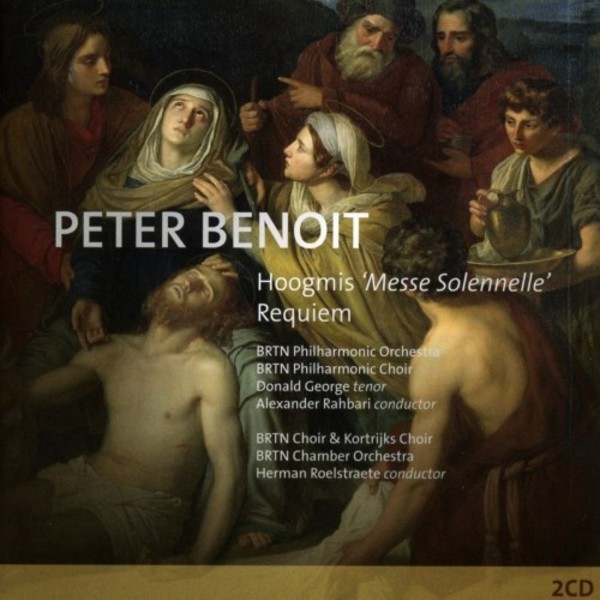
Benoit - Hoogmis (Messe solennelle) & Requiem
£13.25
In stock - available for despatch within 1 working day
Despatch Information
This despatch estimate is based on information from both our own stock and the UK supplier's stock.
If ordering multiple items, we will aim to send everything together so the longest despatch estimate will apply to the complete order.
If you would rather receive certain items more quickly, please place them on a separate order.
If any unexpected delays occur, we will keep you informed of progress via email and not allow other items on the order to be held up.
If you would prefer to receive everything together regardless of any delay, please let us know via email.
Pre-orders will be despatched as close as possible to the release date.
Label: Etcetera
Cat No: KTC1473
Format: CD
Number of Discs: 2
Genre: Vocal/Choral
Release Date: 5th October 2017
Contents
Artists
Donald George (tenor)BRTN Philharmonic Choir
BRTN Philharmonic Orchestra
BRTN Choir
Kortrijks Choir
BRTN Chamber Orchestra
Conductors
Alexander RahbariHerman Roelstraete
Works
Hoogmis (Messe solennelle)Requiem
Artists
Donald George (tenor)BRTN Philharmonic Choir
BRTN Philharmonic Orchestra
BRTN Choir
Kortrijks Choir
BRTN Chamber Orchestra
Conductors
Alexander RahbariHerman Roelstraete
About
Error on this page? Let us know here
Need more information on this product? Click here